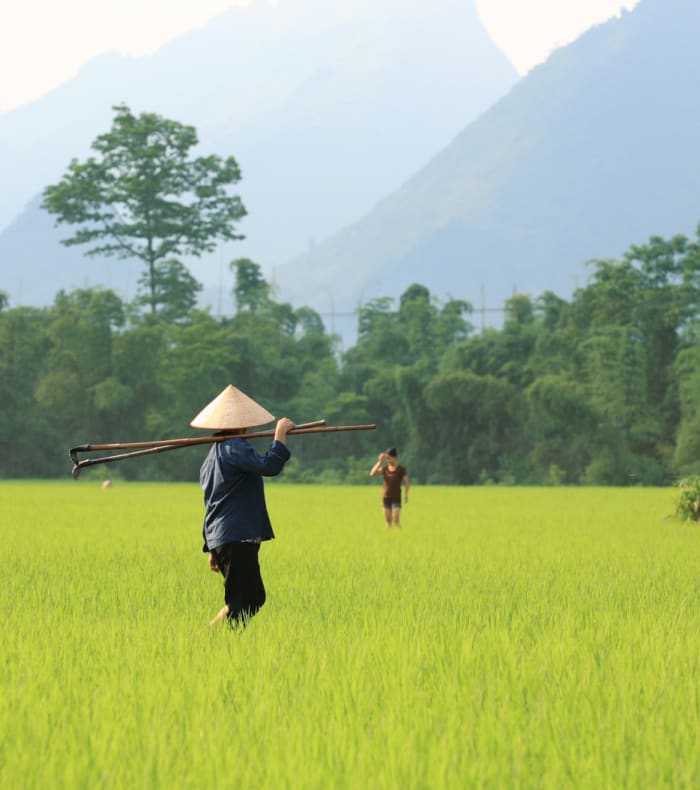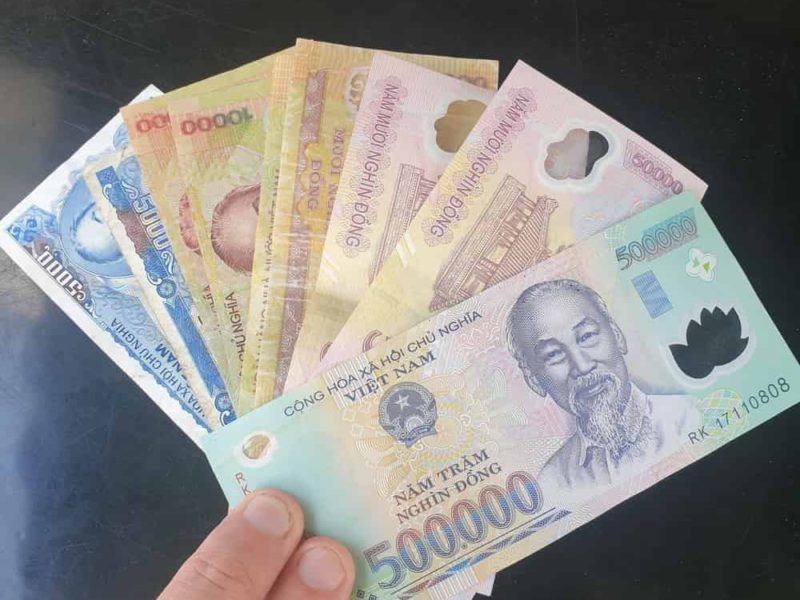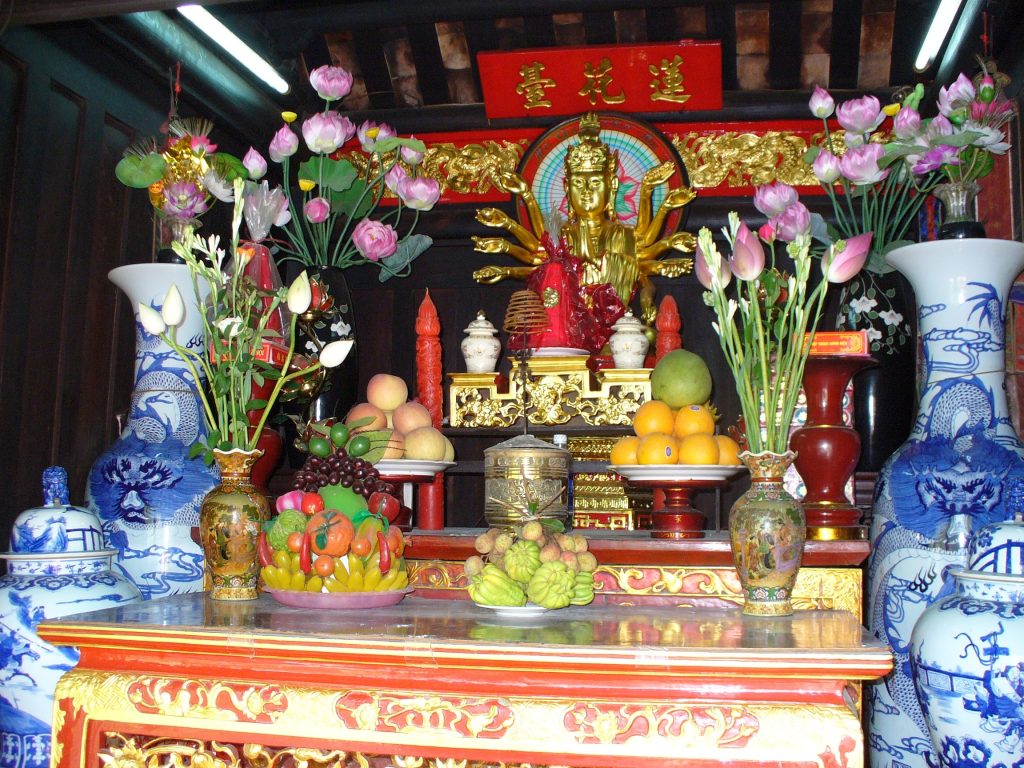OTHER PRACTICAL INFORMATIONS
Here is some other practical information to know before going to Vietnam.

Jet lag
The time difference is +6 in winter and +5 in summer compared to GMT time.
The times of sunrise and sunset are practically constant all year round around 6:00 a.m. / 6:00 p.m.

Money
La monnaie nationale du Vietnam est le DONG (VND).
1 € is worth between 25,000/27,000 VND
1 USD between 19,000 / 22,000 VND
Of course, these exchange rates are given as an indication and constantly fluctuate, but since inflation now tends to stabilize, they follow the movement and no longer vary as suddenly as in the past.
✔ Foreign currency
The most common foreign currency in Vietnam is the US dollar (USD). The euro is nevertheless highly courted. It is changed without problem everywhere in the country.
A law stipulates that everything must be paid in VND, but we cannot say that it is applied to the letter! In practice, you can sometimes pay in dollars or euros. In the tourism industry, prices are often stated and/or displayed in US dollars (USD).
Tip: avoid paying for your purchases in VND in shops and stores where the price is fixed in USD. On the one hand, the seller may not accept and on the other hand, the conversion from USD to VND always rounds up to your disadvantage. This is also the case for the euro.


✔ Change
We advise you to change your currencies gradually and not all at once, and to always carry small denominations with you. Indeed, it is not always easy to pay with too large bills.
Change preferably in banks or jewelry stores (euros or dollars), rather than in hotels.
Normally, there is no commission on the exchange. Always recount and verify the amount given to you, unless it is counted by a machine, which is common.
Preferably take large denominations such as €50 and €100 notes, preferably new or in very good condition (without stains or writing, they risk being refused), the change is much more interesting. However, coins are not accepted in Vietnam.
When you change money in Vietnam, there is a proverb that says: in the morning you are a millionaire but at the end of the day, you are poor.

✔ Payment cards
There are now distributors everywhere in medium and large cities, and more and more hotels accept payment cards, although most banks and businesses apply a commission, often around 3%, sometimes a little more, (to do with your bank).
A priori there is no control at customs on the sums you take, but be careful all the same above 6000€/7000€
Even if credit card payments are increasingly accepted, there are places where this is impossible, such as markets for example.
Cash is still commonplace in Vietnam where it is still very privileged.

Tipping practice
The question of tips is always very delicate. First of all, it is not obligatory, but it is a strong custom in tourism in particular, which must be followed, based on the appreciation and satisfaction of the customers.
It is advisable not to give too small tips. It is better to give nothing than to give too small a sum which can offend.
Regarding the tip for the guides, it is good to plan around 5€/Day/traveller if you are really happy with their services. When the group has several participants (6 or more) each traveler can donate around €2. For the driver, count half less.
In principle, it is not necessary to tip in cafes and restaurants. Leaving one is a matter of personal and human appreciation. However in the south of the country, it is strongly recommended to leave one if you do not want to upset the Vietnamese.
Namely that for ALL the activities in which you will participate (even if they are PAID OR INCLUDED in the circuit), the guide will make you understand that it would be good to leave a tip.
The practice of offerings
You see a lot of Vietnamese pilgrims bringing and giving offerings and leaving a few DONGS everywhere on the plates in front of the statues or putting them in a donation box in temples and pagodas. This is not a tip, but a contribution to worship, prayers, maintenance of the premises….
It is a very good custom in the traditional thoughts of Vietnamese people. It is very fashionable to leave a few dongs in the urn.

Purchases
You can buy all along your journey, but be careful of the weight of suitcases for domestic flights (max. 20kg).
On this subject, negotiation is an institution in Vietnam, especially in the markets except in the state shops where the prices are fixed. However, the prices are also much lower so do not hesitate to compare!
Haggling still works among Vietnamese for purchases outside supermarkets. And even if you’re not used to it, you have to try. These are prices that give you an idea and you can quite reduce the starting price.
However, be reasonable and know that in the shops where the price is displayed, this price is fixed and acceptable and without haggling!


Telecommunications
Mobile phones work normally, on the whole territory, with the « world » option. No need to change chips. If you don’t have this option put your phones in airplane mode. otherwise, it is very easy to get a SIM card during your stay in Vietnam.
You can download one of the applications such as ZALO, WHATSAPP, FACETIME, SKYPE, VIBER… which you can use with the WIFI of the hotel and in all the places where there is WIFI. This is the case everywhere in Vietnam where the telecommunications network is very efficient.


